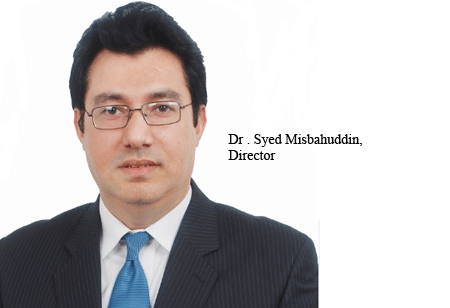 Medical science has come a long way resulting the medical industry to see unprecedented technological advancements and has raised the demand for medical equipments. As 50 percent of the world population is estimated to be over 65 years by 2039, the Medical Devices industry has to be prepared to undergo a strategic change in how it approaches the demand-supply model the market currently subscribes to and tackle an aging population along with lifestyle choices every generation adheres. Inventiveness and innovations are necessary if progress has to be made in resolving critical cases quickly and the medical industry has to take steps to shift focus towards prevention, reduce hospital stay, remote/self-monitoring and minimally invasive treatments. And one of the Indian multi-national companies making their presence felt in this globally concentrated agenda is Synapse Point of Care Diagnostics.
Medical science has come a long way resulting the medical industry to see unprecedented technological advancements and has raised the demand for medical equipments. As 50 percent of the world population is estimated to be over 65 years by 2039, the Medical Devices industry has to be prepared to undergo a strategic change in how it approaches the demand-supply model the market currently subscribes to and tackle an aging population along with lifestyle choices every generation adheres. Inventiveness and innovations are necessary if progress has to be made in resolving critical cases quickly and the medical industry has to take steps to shift focus towards prevention, reduce hospital stay, remote/self-monitoring and minimally invasive treatments. And one of the Indian multi-national companies making their presence felt in this globally concentrated agenda is Synapse Point of Care Diagnostics.Synapse was founded in the year 2007 with a mission to disrupt the established system where encouragement for a patient centric medication/treatment process was lax which compelled them to start a range of services which helps in near patient diagnostics in a primary care setting and self-monitoring putting the focus right onto the patient. “The purpose of operating in this segment is we believe that the current scenario in the diagnostics is not really patient centric. The traditional way of diagnostics is through centralized diagnostics, various centers for diagnostics are established whether it is a hospital or a standalone diagnostic centre, which take a day or two to process tests. However, this is an inconvenient way for patients and more than one visit to the doctor is required to complete the assessment process. The cost of treatment goes high if a patient goes to a secondary care or a tertiary care hospital,” expounds Syed Misbahuddin, Director of Synapse POC.

“Being a market leader in its segment, Synapse has now worked with an array of celebrity doctors, pharmaceutical companies, NGOs and other MNCs”
Disruption of the prevailing status quo does not happen over night though and it requires substantial amount of time and educated positive perception to divert the existing customers towards change - a change that leads towards higher productivity. Challenges of incumbent laboratories, physicians and doubts over quality and reliability of the product were overcome with much panache. Synapse POC over the years have added a number of products to their kitty, like Labona Check A1c Analyzer – an accurate, user friendly and robust portable analyzer for the analysis of HbA1c which is NGSP, IFCC certified, FDA approved product. Along with this feature product, Synapse’s other product include Aina - a Mobile Blood Analyzer, comprising of a novel hardware sensor that plugs into any smart phone and an array of proprietary dry-chemistry strips to test six basic blood parameters. Aina can test for HbA1c, Glucose, Lipids, Hemoglobin and Creatinine on a smart-phone device in an affordable manner and serves as an excellent solution for laboratories, clinician offices and point-of-care settings.
Other than delivering supreme quality medical devices, what sets apart this New Delhi based company is the narrowed focus on Point of Care solutions unlike the existing MNCs who are more into the lucrative sector of laboratory diagnostics. The Synapse team is also blessed with diverse and talented people in every department tapping into their domain knowledge bank, Syed alone has 16 years of experience in clinical diagnostics. Being a market leader in its segment, Synapse has now worked with an array of celebrity doctors, pharmaceutical companies, NGOs and other MNCs. The 9-year old company continues to usher in more technology based services in the future. “We have great products and would continue to add new products and services as there is a high demand for software enabled connected devices. Synapse is also working towards developing middle ware, scale up operations in some locations and starting kiosk services,” Syed concludes.



.png)
